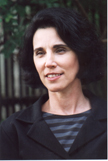 |
|

Celf Specialization: Discourse structures and grammar in context; Language and affect; Language socialization; Cross-cultural communication. Madagascar, Samoa, U.S., Italy.
Elinor Ochs is a linguistic anthropologist with research interests in the role of language and culture in life span human development and learning across social groups. She has conducted fieldwork on communicative practices in Madagascar, Samoa, Italy and the United States. In her Samoan child language research (NSF), Ochs found that caregivers did not use baby talk, leading her to develop with anthropologist B. Schieffelin a field of inquiry known as language socialization. This discipline examines how children and other novices are socialized through language practices into becoming competent members of families, peer groups, schools, religious organizations, sports teams, professions and other institutions. In 1984, Ochs was awarded a Guggenheim Fellowship to analyze the role of baby talk in middle class American family culture. This research led to a study of the language socialization practices of mainstream Euro American parents during dinnertime (NICHD). Ochs found that children were socialized into collaborative problem-solving of life experiences through exchange of personal narratives. Parents and children usually recounted a problematic incident that transpired, and family members collectively discerned its authenticity and moral meaning. The communicative, cognitive, and social skills involved in these dinner interactions resemble those associated with academic problem-solving. To pursue this possibility, Ochs documented collaborative problem-solving communication in a university physics laboratory, focusing on how scientists come to grips with enigmatic findings, challenge each other yet manage to achieve a working consensus for purposes of presenting a conference paper or publishing results (Spencer Foundation). In addition, Ochs has conducted extensive research with clinical psychologist L. Capps on how children may be socialized into mental disorders through family narrative practices, focusing on panic disorders. This collaboration led Ochs and Capps to develop an analytic framework for understanding the role of personal narrative in mental well-being. Recently, they turned their attention to the role of narrative and other language practices in socializing intelligent children with autism into the culture of family and school (Spencer Foundation). Elinor Ochs is currently Professor of Anthropology and Applied Linguistics at the University of California, Los Angeles. She is a MacArthur Fellow (1998-2003) and Fellow of the American Academy of Arts and Sciences (1998 -). Other honors include: President of the American Association for Applied Linguistics (1996), President-elect of the Society for Linguistic Anthropology (2002), Honorary Doctor, Linkoping University (2000), Helsinki University Rector’s Medal of Distinctive Scholarship (1996). Some of Ochs’ books include Acquisition of Conversational Competence (with B. Schieffellin), Routledge, Kegan, & Paul, 1983; Culture and Language Development, Cambridge University Press, 1988; Constructing Panic (with L. Capps), Harvard University Press, 1995; Living Narrative (with L. Capps), Harvard University Press, 2002.
| |
